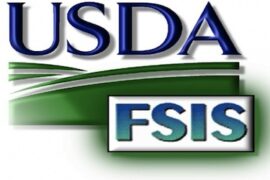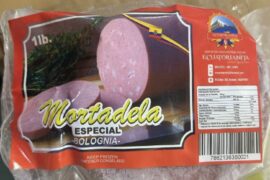Co-op, the largest consumer co-operative in the United Kingdom with more than four million active members and £7.1bn in food sales last year, has widened its “Buy British” focus by pledging to sell 100% UK-sourced own-brand frozen meat products at its 4,200-plus retail locations.
The announcement followed notification earlier this month that all fresh own-brand beef, chicken, pork, lamb, bacon, sausage and turkey offered by the Manchester, England-headquartered group will come exclusively from UK farms. Approximately £2.5bn will be invested to procure own brand British meat, as well as dairy products and produce from the United Kingdom over the next three years.
Meat imports into the UK have doubled over the last 20 years, according to new research by the Co-op, which has called on more supermarkets and foodservice providers to back home-grown goods.
 Since 1996, the quantity of meat coming to the UK from the European Union and other countries has soared from £3bn to £6.2bn. More than £5bn worth is now shipped into Britain from EU member states, while Asia and Oceania countries account for £804m worth of imports followed by Latin America at £345m.
Since 1996, the quantity of meat coming to the UK from the European Union and other countries has soared from £3bn to £6.2bn. More than £5bn worth is now shipped into Britain from EU member states, while Asia and Oceania countries account for £804m worth of imports followed by Latin America at £345m.
Asian and Oceanic exporters have seen their meat products to the UK almost treble from £304m in 1996. The biggest imports from that region come from Thailand (£423m) and New Zealand (£291m).
Ireland is the biggest beneficiary of EU meat trade with the United Kingdom, with £1.45bn of meat arriving in the UK from across the Irish Sea.
On May 2, Co-op stores began providing only 100% fresh British bacon and lamb – dropping Danish bacon and New Zealand lamb from its listings. Almost a tenth of all meat imports into the UK come from Denmark, which exports £550m worth of meat into Britain each year while New Zealand lamb accounts for £291m worth of UK imports.
The Co-op already exclusively sells British beef, chicken, ham, pork, sausages, duck and turkey, and only uses British meat in all its own-label chilled ready meals, pies and sandwiches.
 Jo Whitfield, Co-op’s retail chief executive stated: “British consumers will be shocked to see how meat imports have grown while at the same time retailers hang out the bunting and claim to back British farmers. Only the Co-op offers 100% British fresh meat all year round, and not just in the meat cabinet but also in our sandwiches, our pies and our ready meals. We can do this because we’re owned by members, not shareholders, and can invest long-term in what matters to communities, not what provides the fastest shareholder return.”
Jo Whitfield, Co-op’s retail chief executive stated: “British consumers will be shocked to see how meat imports have grown while at the same time retailers hang out the bunting and claim to back British farmers. Only the Co-op offers 100% British fresh meat all year round, and not just in the meat cabinet but also in our sandwiches, our pies and our ready meals. We can do this because we’re owned by members, not shareholders, and can invest long-term in what matters to communities, not what provides the fastest shareholder return.”
Whitfield added, “I call on other retailers and food providers to do more to help our farmers, particularly as they head towards uncertain times,” alluding to the looming fallout from Brexit ramifications as Britain leaves the European Union.
Zoe Davies, chief executive of the National Pig Association, commented: “Around half of the pork consumed in the UK is imported. Fluctuating currency markets and imports which are cheaper because of lower welfare standards can significantly impact the cost of home produced pork, making it harder for farmers to make a living. We call on more retailers and food providers to back British and either source more UK pork or follow the Co-op’s lead and go 100% British.”
Meat imports by UK firms are up from £5.87bn in 2015 to £6.21bn in 2016. They have risen by a third since 2006, when they totaled £4.7bn.
Meanwhile, Co-op has launched a £10m campaign focusing on the benefits of sourcing from British local farmers. Full-page print ads are appearing in national newspapers and a TV campaign will follow.





